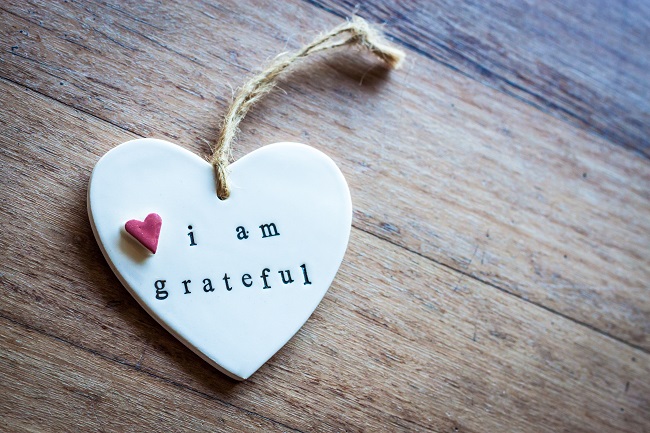 It is very much in vogue to have a “gratitude practice.” We are supposed to have gratitude journals. We are encouraged to meditate on being grateful. And then there are an abundance of books and articles to read about gratitude.
It is very much in vogue to have a “gratitude practice.” We are supposed to have gratitude journals. We are encouraged to meditate on being grateful. And then there are an abundance of books and articles to read about gratitude.
The problem is this: What does being grateful mean in practical terms? Let’s say that I achieve this elusive state of gratitude. How does that change my everyday life?
If you truly have developed “an attitude of gratitude,” as they say, it transforms how you respond to every situation in your life. It is like putting on a pair of special glasses which allow you to see the world from a completely different perspective. I know this because on those days when I am feeling properly grateful, I view my entire day differently. I respond to everyone and every situation in a far better manner.
Let me give you an example. Every night after dinner, I clean up the kitchen. When I go to bed, my kitchen is spotless. And that is the way I expect to find it when I get up in the morning. Except this morning, I came down to a pile of dirty dishes in my sink. My teenager had decided to make a smoothie in the middle of the night, and washing her dishes was not part of her process.
So, how did I respond? Well, I was irritated. And I let my daughter know it. I didn’t have my Gratitude Glasses on. So, we had a very silent ride to school, with both of us being mad.
And then God put me squarely in my place. On the way home, after dropping her off at school, I listened to a podcast in which the reporter interviewed a family who had been present during the New Zealand terrorist attack. The father had been shot, but survived the attack. His son, a young married man with a two-year-old daughter, was killed.
The reporter interviewed the young man’s wife and his younger brother and sister. They all spoke about how much they loved and admired this young man. He was kind, devoted to his family and always gave great advice. And now they are all trying to figure out how to carry on with life, now that there is this big, gaping hole in their family unit.
I am sure that they would do anything to have him back with them again. I am sure that they would love the opportunity to wash a sink full of dishes, if it meant that they could see him just one more time. And here I was, stupidly complaining about dirty dishes, when I was blessed to have my child, alive, healthy, and in my house.
And that to me is the point of a gratitude practice. If you are truly grateful, then you know for sure who and what you are grateful for. You are grateful that your cherished family members and friends are alive and walking this earth. Because you know that some people are suffering at this moment due to the loss of a loved one. You are grateful for your health, and the fact that you woke up this morning. Because you know that some people are very ill, and others did not wake up this morning.
A gratitude practice clears out all the noise. It gets us into this very raw and real place where we acknowledge who and what we are most grateful for. Who would you not want to live without? What would you not want to live without? Once you answer those questions, you know what you are most grateful for in life.
This week, take your gratitude practice to the next level. Don’t just consider what you merely appreciate in life. Ask yourself the hard questions of who and what you are most grateful for in life. Who and what would you not want to live without? Then have all your thoughts, words and actions reflect what is most precious to you.
(Photo Courtesy of Pexels)

